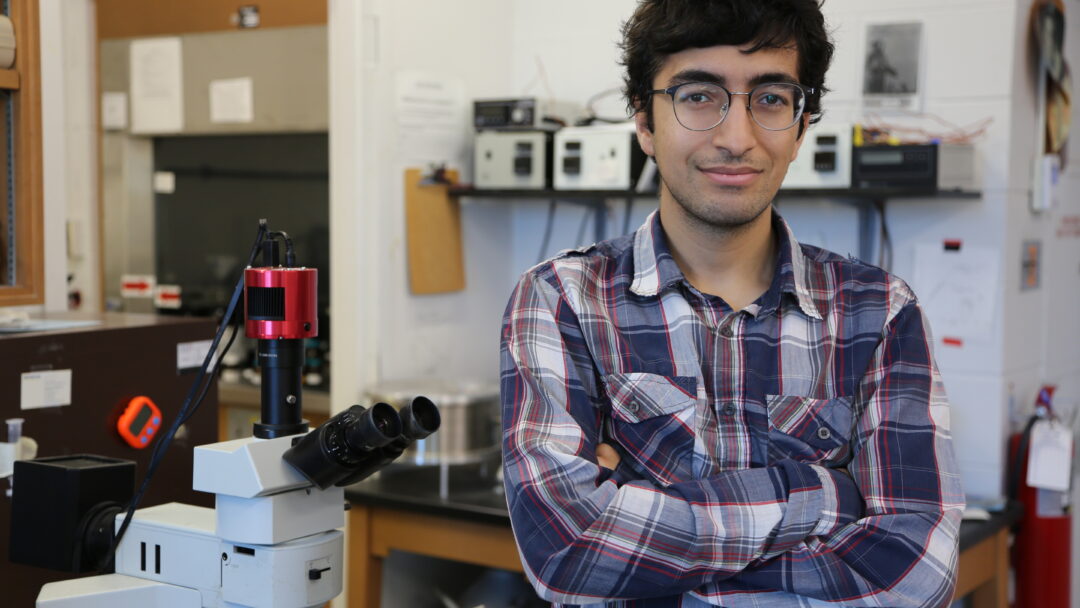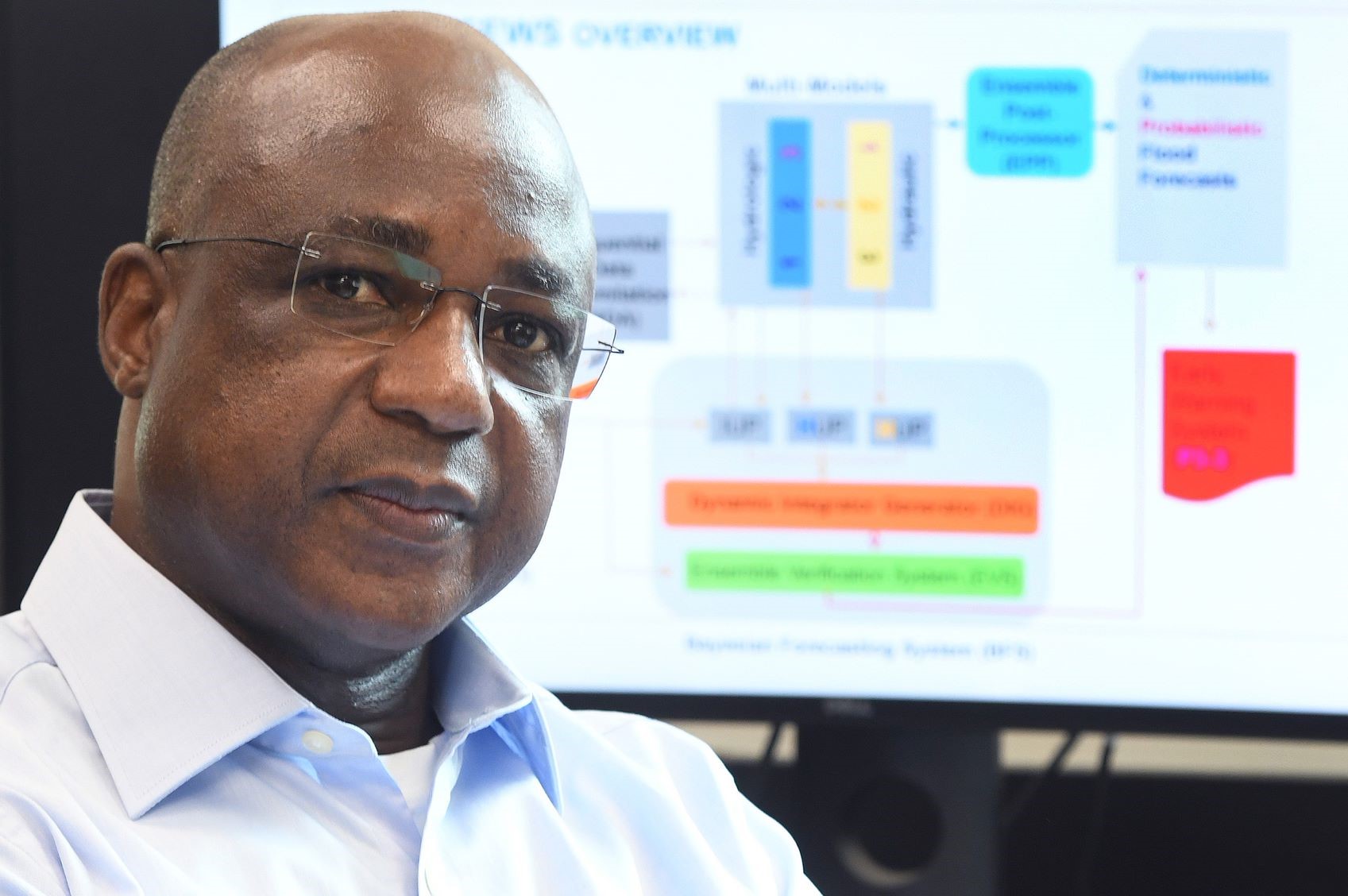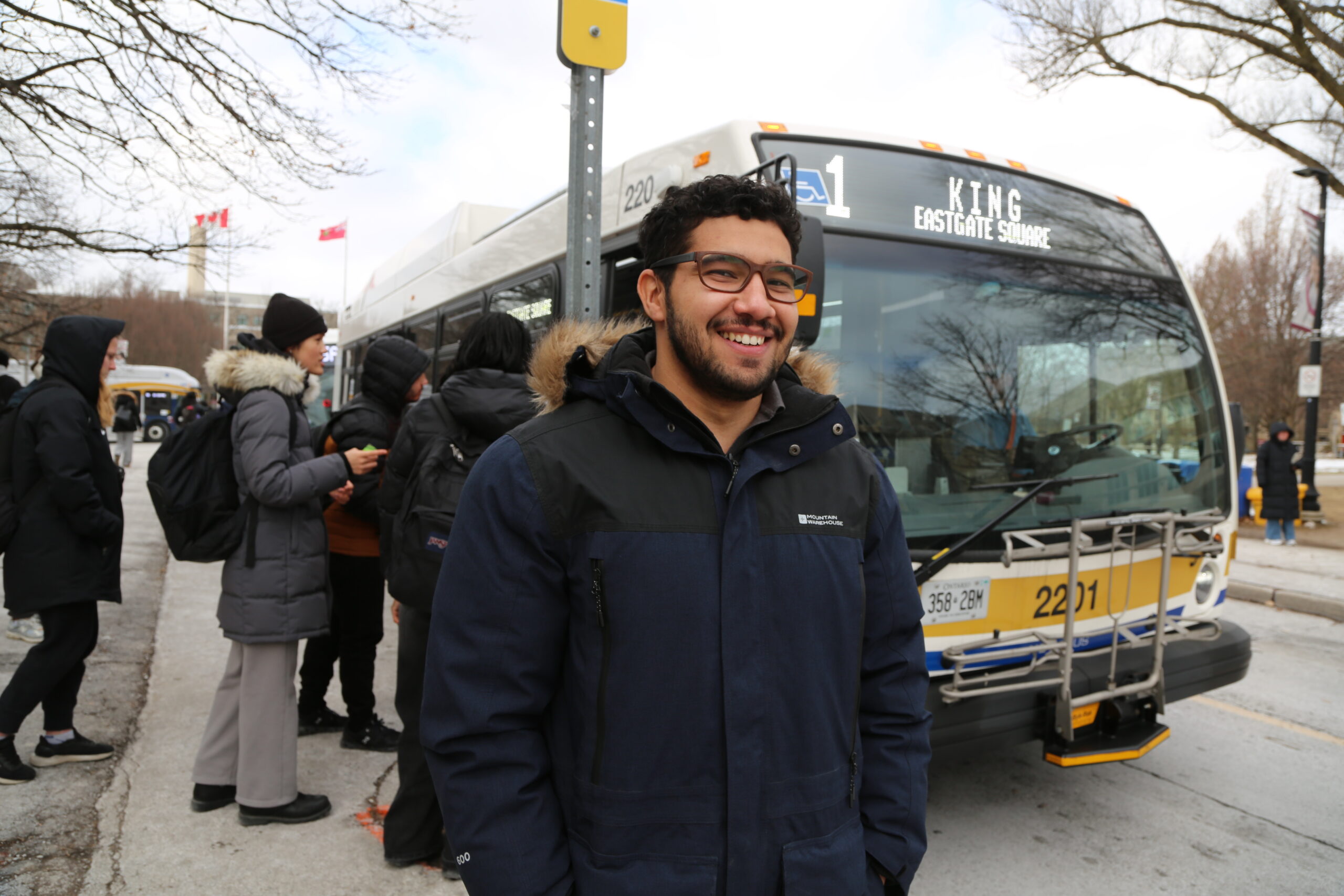Grad to Watch: Research, academic and outreach all-star Hamza Khattak

Hamza Khattak’s research record can be summed up in two words by his supervisor.
“Enviable and off-scale,” says physics professor Kari Dalnoki-Veress. “To say that Hamza’s an outstanding researcher would be an understatement.”
When Hamza joined McMaster as a graduate student in 2018, he already had two research papers published in peer reviewed journals while studying chemistry and physics at Trent University.
Two more papers that Hamza had started as an undergrad were published in 2019. One of those papers was published in the Proceedings of the National Academy of Sciences with professors Pablo Bianucci and Aaron Slepkov. Their research explained the science behind how microwaving a bisected grape can make plasma.
It’s not something to try at home or in the lunchroom at work. “It’s a fun experiment but the plasma can escape the grapes and melt through the top of the microwave so you need to be careful,” says Hamza. “A glass or cup on the grapes can reduce issues since it confines the plasma. We broke a lot of microwaves though so proceed at your own risk.”
Their research was featured on Veritasium, a leading YouTube channel of science and engineering videos – the clip’s had 19 million views and counting.
Hamza’s added another five publications while at McMaster – he graduates this month with a PhD in condensed matter and materials physics. He’s spent many hours looking through microscopes. His research has focused on droplets – how they interact with soft surfaces and migrate on fibres. He’s also studied what happens to ferrofluid droplets in a magnetic field. It’s research that has both fundamental impact and technological relevance, says Kari, who’s the Faculty of Science Research Chair in Experimental Soft Condensed Matter Physics.
When asked about his research, Hamza says he’s been lucky. “I’ve just been in the right place at the right time working on the right projects.”
Kari says something else is at play. “It’s clear to me that his research record is far more than a matter of luck. Hamza has a knack for repeatedly finding good projects and taking them to completion. He’s absolutely relentless in the pursuit of good data.”
While Hamza admits that he doesn’t know his grade point average for his graduate courses, Kari does – it’s a near perfect 11.83. “Hamza’s transcript is a sea of As. Students tend to do well in either theoretical courses or with their experimental studies – he aces both.” Hamza passed his PhD comprehensive exam with distinction – it’s a rare honour that the department awards to a single exceptional student once every few years. “Hamza’s one of those students who does everything and excels at everything he does.”
That’s translated into a host of awards for Hamza, starting with the department’s largest entrance award for incoming graduate students. He’s also received a Natural Sciences and Engineering Research Council of Canada (NSERC) graduate scholarship, an Ontario Graduate Scholarship and an NSERC Vanier Scholarship that made him a fully self-funded PhD student.
Hamza believes it’s not enough to do research – scientists also need to be science champions and communicators. He says that’s something Kari both preaches and practices and it influenced his decision to go to McMaster for graduate studies.
While at Trent, Hamza went to a national conference where one of Kari’s students put their communication skills to work and delivered a standout presentation. Hamza’s interest was piqued and he reached out to other current and former students. All of them gave Kari glowing reviews. “The students said Kari gave them the freedom and support to pursue projects that interested them. They all seemed to be having fun working with Kari.”
All throughout his master’s and PhD, Hamza has volunteered with Let’s Talk Science – he’s rocking the non-profit’s sweatshirt while doing his interview with Veritasium. Let’s Talk Science focuses on education and skills development for children and youth through science, technology, engineering and math-based problems. McMaster’s student-run chapter is among the largest and longest running in the country. Along with going into elementary and secondary schools to run hands-on experiments, Hamza spent three years as an educator coordinator working with teachers to plan visits.
Hamza goes into classrooms with a singular mission. He wants kids to have fun doing experiments. “If they’re having fun, they lose the fear that lots of kids have when it comes to science.”
Fun is a word that comes up time and again when talking with Hamza. He says he’s had lots of it over the past six years doing research, teaching and volunteering. And he’ll keep having fun at McMaster for another year.
He successfully defended his PhD thesis at the end of July and was on plane the next day to visit family in Pakistan. Three weeks later he was back at McMaster working for Kari as a postdoctoral research assistant and teaching a third-year physics course. When asked if prefers teaching Grade 1 kids or university students, Hamza says both groups are excited to learn.
Hamza is the Swiss Army Knife of Kari’s research group, doing whatever’s needed to help students and keep the lab firing on all cylinders.
When his time at McMaster comes to an end next fall, Hamza plans to work in industrial research. He hopes to land a job with a company in the Greater Toronto and Hamilton Area so he can continue spending weekends helping out on the family farm just outside Peterborough. His dad’s an engineer who always dreamed of owning a farm.
Hamza knows leaving McMaster and academia won’t be easy – it’s going to be a tough goodbye next year. “I’ve had a lot of fun and worked alongside a lot of amazing people.”
Grads to watch, Outreach excellence, PhD student, Research excellence
Related News
News Listing

Research group receives federal climate change funding to help plan and design more resilient electricity systems
Faculty, Research excellence
January 28, 2025

Faculty of Science launches five research-focused credit courses for first and second-year students
Research excellence, Student experience, Students
January 23, 2025

International PhD student’s passion for mentorship recognized with Faculty of Science award
PhD student, Student experience, Student leadership
January 8, 2025
